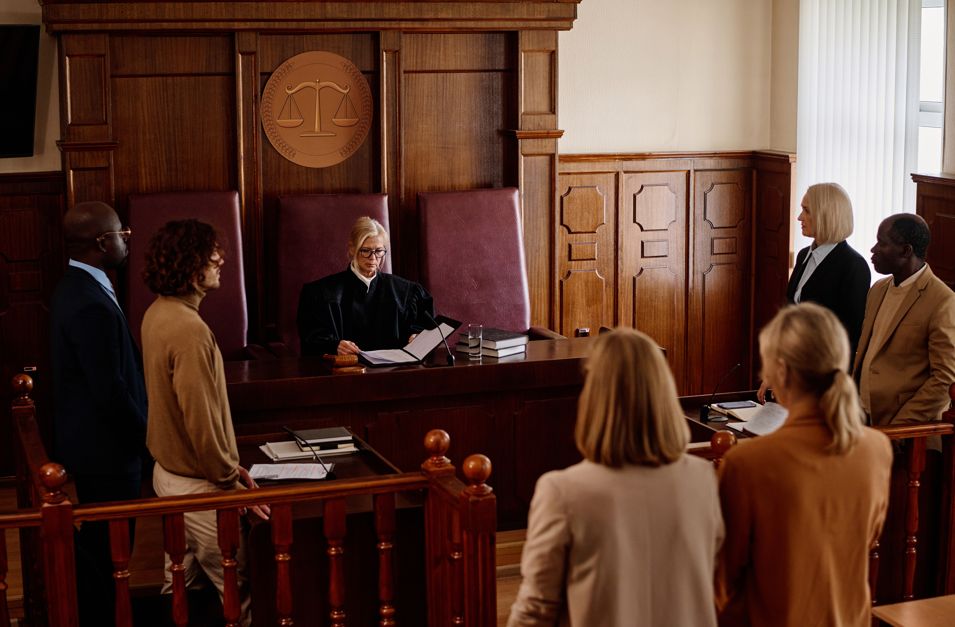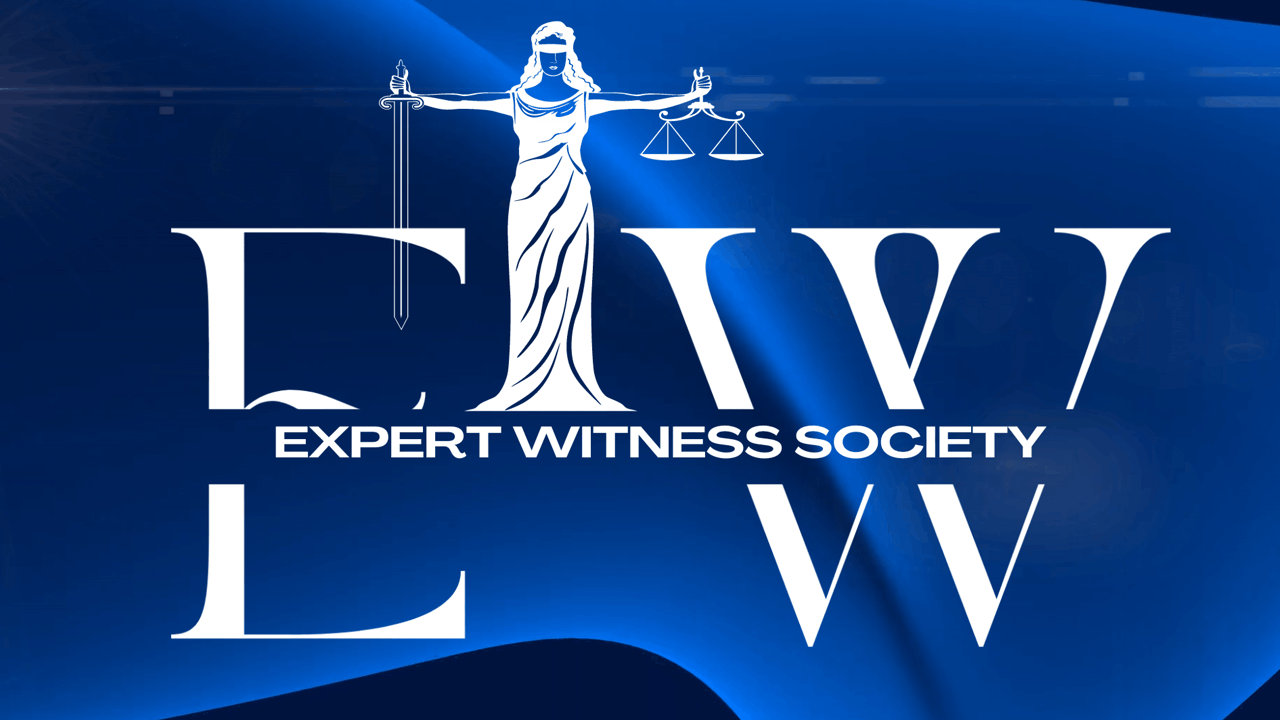In the intricate tapestry of the legal system, the testimony of expert witnesses often holds the key to unraveling complex cases. These highly qualified professionals, hailing from diverse fields, lend their specialized knowledge and experience to shed light on intricate matters that may elude the understanding of laypersons. As the legal arena increasingly grapples with cases involving technical or scientific nuances, the demand for expert witnesses has soared, underscoring their indispensable role in the pursuit of justice.
Distinguishing the Professional from the Expert
While the terms “professional witness” and “expert witness” are sometimes used interchangeably, a subtle yet crucial distinction exists between the two. A professional witness is an individual who possesses hands-on knowledge and practical experience within a particular field, such as a plumber adept at identifying and resolving drainage issues or a mechanic well-versed in automotive repairs. However, an expert witness is a cut above, commanding a profound and comprehensive understanding of their domain that transcends mere practical application.
Expert witnesses are often recognized authorities in their respective fields, having conducted extensive research, developed groundbreaking theories, or achieved remarkable feats that have advanced the frontiers of knowledge. Their expertise is not merely confined to the day-to-day execution of tasks but encompasses a deep grasp of the underlying principles, methodologies, and cutting-edge developments that shape their disciplines.

The Multifaceted Roles of Expert Witnesses
In the legal arena, expert witnesses assume a multifaceted role, serving as educators, analysts, and impartial arbiters of truth. Their primary responsibilities can be distilled into three key functions:
- Establishing the Standard of Care: Expert witnesses are tasked with defining the applicable standard of care within their field, providing a benchmark against which the actions or decisions under scrutiny can be measured.
- Assessing Deviations from the Standard: Once the standard of care has been established, expert witnesses are called upon to evaluate whether any deviations from this norm have occurred and, if so, to what extent.
- Determining Causation: In cases where a deviation from the standard of care is identified, expert witnesses may be asked to offer their professional opinion on whether this deviation directly contributed to or caused the alleged harm or injury.
The Burden of Proof: A Delicate Balance
In civil cases, the burden of proof rests on the plaintiff, who must convince the jury of their position by a preponderance of the evidence. This means that the plaintiff’s arguments and evidence must be more plausible and convincing than those presented by the defense, surpassing the 51% threshold. It is here that the expert witness’s testimony can tip the scales, lending credence and weight to one side’s narrative over the other.

Navigating the Complexities of Medical Malpractice
One area where expert witnesses play a pivotal role is in medical malpractice cases. These intricate legal battles often hinge on intricate medical concepts, cutting-edge treatments, and nuanced standards of care that can be challenging for non-medical professionals to grasp fully. Expert witnesses, typically seasoned medical practitioners or researchers, are called upon to shed light on the intricacies of the case, translating complex medical jargon into comprehensible terms for the judge and jury.
In medical malpractice cases, expert witnesses are tasked with delineating the applicable standard of care, which may vary based on factors such as the healthcare provider’s specialty, the geographic region, and the specific circumstances of the case. They must then assess whether the defendant’s actions or decisions deviated from this standard and, if so, whether this deviation directly contributed to the patient’s alleged injury or harm.
However, it is crucial to note that an unfavorable outcome or medical error does not automatically constitute medical negligence. Expert witnesses must carefully distinguish between instances where the standard of care was breached and those where the outcome was simply an unfortunate consequence of the inherent risks associated with medical interventions.
The Ethics of Expert Testimony
While the role of expert witnesses is pivotal in legal proceedings, it is not without its challenges and ethical considerations. There have been instances where expert witnesses have provided testimony that is biased, scientifically unsound, or tailored to support a particular party’s interests. Such conduct not only undermines the integrity of the legal system but also erodes public trust in the expertise upon which the system relies.
To address these concerns, various professional medical societies have established guidelines and recommendations for expert witnesses. These guidelines often emphasize the importance of objectivity, impartiality, and adherence to scientific principles. Expert witnesses are encouraged to conduct thorough reviews of all relevant evidence, avoid excluding pertinent information that may be unfavorable to their client, and base their opinions solely on accepted standards and practices within their field.
Additionally, many societies discourage expert witnesses from entering into compensation arrangements contingent on the outcome of the case, as such arrangements could create conflicts of interest and undermine the objectivity of their testimony.
Qualifying as an Expert Witness
To serve as an expert witness, individuals must typically meet stringent qualifications that vary based on their field of expertise and the jurisdiction in which they are testifying. In general, expert witnesses are expected to possess the following credentials:
- A current, valid, and unrestricted professional license or certification in their area of expertise, issued by a recognized governing body.
- Extensive practical experience and active engagement in their field, often spanning several years immediately preceding the case in question.
- Specialized knowledge, training, or research contributions that elevate their expertise beyond that of a general practitioner or layperson.
It is worth noting that the qualifications for expert witnesses may differ across various medical specialties, with some fields imposing additional requirements or guidelines specific to their domain.
The Deposition: A Crucible of Credibility
Before an expert witness takes the stand, they typically undergo a rigorous deposition process. During a deposition, the expert witness provides sworn testimony, under oath, in response to questions posed by attorneys from both sides of the case. This process serves as a crucible for the expert’s credibility, as opposing counsel may scrutinize their qualifications, experience, and ability to render an opinion on the specific case at hand.
The deposition can be an adversarial experience, with attorneys employing various tactics to challenge the expert witness’s testimony or undermine their credibility. However, it is a critical step in the legal process, allowing both parties to assess the strengths and weaknesses of the expert’s testimony before trial.

Educating the Court: Demystifying Complex Concepts
One of the most significant contributions of expert witnesses lies in their ability to demystify complex concepts and theories for the judge and jury. Legal proceedings often delve into highly technical or specialized subject matter that may be challenging for laypersons to comprehend fully. Expert witnesses act as translators, breaking down intricate ideas into accessible and understandable terms, ensuring that the court has a firm grasp of the relevant concepts and their implications for the case at hand.
Through clear and coherent testimony, expert witnesses can shed light on the nuances of their field, providing context and insight that may be pivotal in shaping the court’s understanding of the issues at stake. This educational role is particularly crucial in cases involving cutting-edge technologies, emerging scientific theories, or novel medical treatments, where the court’s familiarity with the subject matter may be limited.
The Peer Review Process: Ensuring Credibility and Accountability
To maintain the integrity and credibility of expert witness testimony, many professional societies and organizations advocate for the peer review of such testimony. This process involves subjecting the transcripts of depositions and courtroom testimonies to scrutiny by fellow experts in the relevant field.
The peer review process serves several important purposes. First, it helps to identify any potential inaccuracies, biases, or unsupported claims in the expert’s testimony, allowing for corrections or clarifications to be made. Second, it ensures that the expert’s opinions and analyses align with accepted scientific principles, methodologies, and standards within their discipline.
Additionally, the prospect of peer review can serve as a deterrent against unethical or unprofessional conduct by expert witnesses, as any deviations from established norms or practices may be subject to scrutiny and criticism from their peers.
The Intersection of Law and Science: Navigating Evolving Standards
In an ever-evolving scientific and technological landscape, the standards of care and accepted practices within various fields are constantly shifting. This dynamic nature presents unique challenges for expert witnesses, who must remain abreast of the latest developments and ensure that their testimony accurately reflects the state of knowledge at the time of the event or incident in question.
Expert witnesses must carefully distinguish between contemporary standards and those that were in place during the relevant time period, as retroactively applying current practices to past events could lead to erroneous conclusions or unfair assessments of the defendant’s actions.
Furthermore, in fields where multiple acceptable treatment modalities or approaches exist, expert witnesses must acknowledge and fairly represent the diversity of perspectives within their discipline. Condemning actions or decisions that fall within the bounds of generally accepted practice standards, or conversely, condoning conduct that falls outside these norms, would undermine the credibility and objectivity of their testimony.
Collaboration and Documentation: Keys to Enhancing Outcomes
While expert witnesses play a pivotal role in legal proceedings, their effectiveness is inextricably linked to the collaborative efforts of the entire healthcare team. Accurate and comprehensive medical documentation by nurses, technicians, paramedical staff, medical residents, consultants, and attending physicians is crucial in providing expert witnesses with the necessary information to render informed opinions.
Clear and detailed records, including documentation of informal discussions and care coordination efforts, can aid expert witnesses in piecing together a comprehensive understanding of the events surrounding a case. This, in turn, can enhance the quality and credibility of their testimony, ultimately contributing to more equitable and just outcomes.
Conclusion: Upholding the Pillars of Justice
In the intricate tapestry of the legal system, expert witnesses serve as indispensable threads, weaving their specialized knowledge and experience into the fabric of justice. Their testimony holds the power to illuminate complex issues, challenge preconceived notions, and shape the course of legal proceedings.
As the legal landscape continues to evolve, and cases grow increasingly intricate, the role of expert witnesses will only become more vital. It is incumbent upon these professionals to uphold the highest standards of ethics, objectivity, and scientific rigor, ensuring that their testimony serves as a beacon of truth and fairness in the pursuit of justice.
By embracing the principles of impartiality, continuous learning, and collaboration, expert witnesses can fortify the foundations of the legal system, fostering trust in the expertise upon which it relies and safeguarding the rights of all those who seek its protection.






